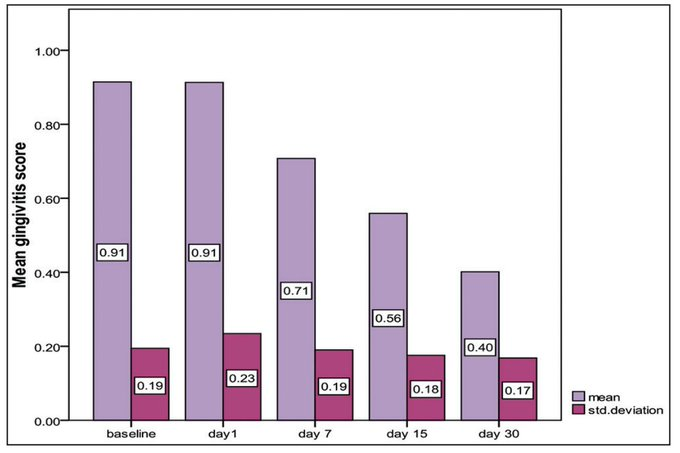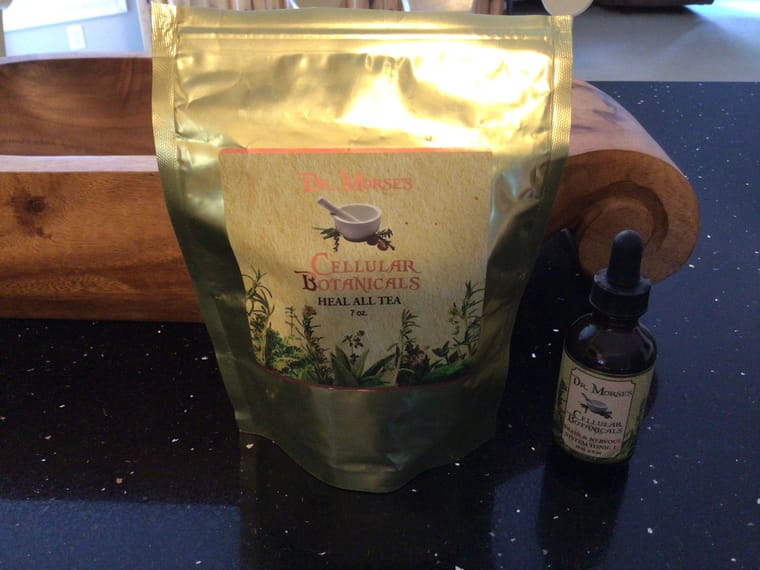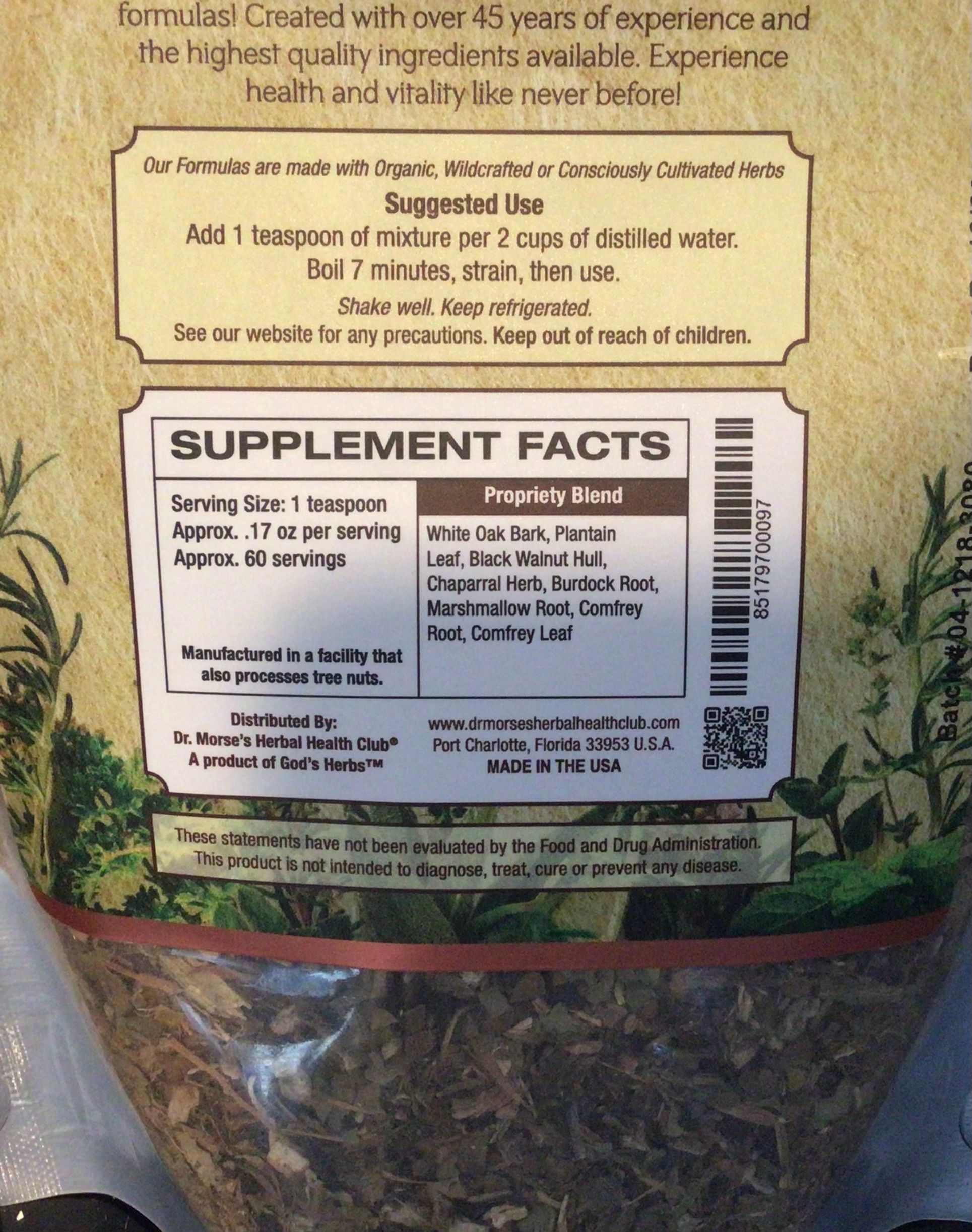Best remedies and interventions for receding gums?
-
Has anyone had this and been able to make positive progress reversing (not just halting) the issue? (Didn't find anything on search for this site.)
What would make sense to do besides switching to a softer toothbrush?
Hopefully we can put together some info that'll be helpful for others as well.
Cheers
-
Gum disease and your microbiome are one and the same, clear up your gut issues, and your gums will respond accordingly.
Antibiotics, oil of oregano, carrot salad, sat. fat and vinegar in combo, etc.
-
@SpaceManJim I'm not sure about receding gums but anytime i have gum inflammation tocovit clears it up rapidly, not sure of the mechanistic functions of how this works. Sometimes I think my gums aren't necessarily receding but the teeth are protruding; I think widening the upper and lower palettes could provide more room for the teeth to fit comfortably in their proper place. I think good oral hygiene, a healthy microbiome, and good nutrition are you're best bet. It could be gum disease which could be explained by a weak microbiome, maybe methylene blue could be an effective short term way to reduce any bacteria causing minor gum disease. I also have had this problem but my microbiome is now healthier than it has ever been I believe and my gums are no longer receding; and it all started when i started taking methylene blue and then stopped taking it and focused on clearing out SIBO, and eating healthy. If i have any suspected microbiome issues I usually go to herbs rather than antibiotics. Ginger, garlic, oregano, etc are all good but i'm not sure how much oregano oil effects the microbiome to be honest it might be overkill unless you need a reset.
-
Rinsing with salt water helps with healing the gums. Dentist often recommend salt water swishes after tooth extractions to expedite healing of the gums.
Can Salt Water Help with Periodontal Disease?
See also Medicinal Plants Used as an Alternative to Treat Gingivitis and Periodontitis
-
@DavidPS Yeah I saw that about salt water, how about baking soda? Similar idea? I've started trying it, feels soothing, and my understanding is that after meals/drinks we want to counter the acidity, so something basic like baking soda should help.
Another one is "oil pulling" (weird name), but it's basically swishing around coconut oil in one's mouth for a while. Another good Peat-y substance so I'll give it a try.
-
@SpaceManJim Vitamin K2 and coconut oil pulling
-
methylene blue mouth wash and rubbing k2 mk4 oil on your gums
-
@SpaceManJim - Oil pulling appears to be a helpful.

Effect of coconut oil in plaque related gingivitis—A preliminary report - 2015 -
Has anyone tried DMSO?
My experience thus far. Is nothing actually works. At least none of the typical interventions that people do. I am unconvinced that there is general microbiome dysbiosis.
-
There isn't one. The recession of gums has nothing to do with soft plaque.
Preventing soft plaque is not going to cause that tissue to grow back as the enzymes that have been released into that tissue like collagenase, elastase, fibrinase, and inflammatory biomarkers like TNFa are there to stay as long as the biofilms are there to stay.
If you try and push the biofilms out with aggressive antibiotic usage then the biofilms push back by releasing more enzymes to breakdown more of the tissue for them to feed upon. It seems like in theory if you could somehow improve immunity to be hyper resistant against oral pathogens then the oral cavity would be in such an environment that elements of that microbiome that might aid in tissue regeneration might be able to flourish. Microbiome science is in its infancy though even now, so no such thing has been discovered as of yet and everything points to the fact that once a non-complimentary biofilm has taken root in a tissue that isn't your gut, it's there to stay for the longhaul. Doing things for your gut will improve immunity, but given that the bacteria that inhabit the oral cavity have nothing to do with the gut, probiotics and such is not doing much of anything for the situation, and antibiotics will definitely make the situation worse. Sub-clinical doses of doxycycline, about 20mg a day have been found to prevent the bone resorption though accelerated by the biofilms in plaques and oral tissue by inhibiting MMP's which will lessen the rate of decay below the gum line which might lessen gum recession
-
@Serotoninskeptic said in Best remedies and interventions for receding gums?:
Vitamin K2 and coconut oil pulling
Well seen.

Protocol for healthy gums in three steps!- Reduction of gingival inflammation.
- Deep descaling
- Maintenance and regeneration of damaged tissues.
1° Mouthwash
a) Oil pulling (simply olive oil, better with coconut oil) every 2 hours (minimum 6x) (*)
b) Idem with essential oil, 3 x/d. 4/7 days, according to evolution. Lavendula vera and helichrysum Italian.
10 ml oil
40 % EO (40 drops x 2)
Source: Pénoël & Franchomme
- Effect of coconut oil in plaque related gingivitis—A preliminary report - 2015
https://journals.lww.com/nimj/fulltext/2015/56020/effect_of_coconut_oil_in_plaque_related_gingivitis.12.aspx
2° Scaling once a year at the dentist.
Monitor the bottom of the tooth, at the base of the gum, most effective with a rotating toothbrush, as soon as there is sufficient improvement.3° Useful nutrients
Vit D (bones and immunity)
K2 tartar prevention + dentin
Key ideas:- Via the activation of osteocalcin, vitamin K2 promotes the growth of dentin (calcified tissue that underlies the enamel layer of teeth), and as new dentin develops, cavities are less likely to form. Dentin is like ivory, which can regenerate if the cofactors are present, notably the fat-soluble vitamins A D3 and K2.
- We have a trillion bacteria in the oral cavity. Vitamin K2 helps maintain environmental balance (via pH, antioxidant effect and good health of soft tissues).
- To illustrate the impact of vitamin K2 on the oral microbiome, Weston Price conducted a simple experiment several times. He treated patients with a butter oil very rich in vitamin K2 and found that cavity-promoting bacteria decreased by up to 95%, and sometimes disappeared completely.
Source: From “Vitamin K2 Benefits for Dental Health”
By Mark BURHENNE, DDS (dentist)
https://askthedentist.com/vitamin-k2-benefits/
Excerpt:
Here’s a more thorough explanation of the benefits of vitamin K2:
- Builds New Dentin
Because osteocalcin is a K2-dependent protein, increasing vitamin K2 intake causes osteocalcin to work more efficiently. (11) When osteocalcin is activated by K2, it causes the growth of fresh dentin (calcified tissue that underlies the enamel layer of teeth), and when new dentin grows, cavities are less likely to form. (12, 13) (Note that this process also requires vitamins A and D.) (14) - Slows Tooth Degradation
- Leads to Normal Facial Structure
See Weston A. Price to understand why K2 is important for facial development - Kills Cavity-Causing Bacteria
One key factor in cavity formation is the disruption of the oral microbiome.
To illustrate the impact of vitamin K2 on the oral microbiome, Price repeatedly conducted a simple experiment. He treated patients with a butter oil very rich in vitamin K2 and found that the cavity-promoting bacteria was decreased by up to 95 percent, sometimes going away altogether.
-
Have you tried xylitol?
-
@SpaceManJim said in Best remedies and interventions for receding gums?:
Has anyone had this and been able to make positive progress reversing (not just halting) the issue? (Didn't find anything on search for this site.)
What would make sense to do besides switching to a softer toothbrush?
Hopefully we can put together some info that'll be helpful for others as well.
Cheers
Not human but I had success reversing my dog Bee’s gum recession with an herbal tincture called Heal All developed by Dr. Robert Morse, a doctor whose protocol I was following at the time. Bee’s gum recession was so bad that the roots of his canines were visible and despite routine brushing and a high quality diet, his teeth became caked with plaque after a surgery to remove a lump on his eyelid so the vet scheduled him for a tooth extraction and cleaning, but within just 2 days of giving him Heal All once a day his halitosis was gone, and within months all plaque was gone too and his gum recession had fully reversed, and at his follow up visit the vet made no mention of the fact that Bee had been scheduled for a tooth extraction and cleaning just months prior, his dental health was perfect. I’ve used it with success for many conditions. It contains the herbs white oak bark, plantain leaf, black walnut hull, chaparral, burdock root, marshmallow root, comfrey leaf and root.
-
@Jennifer said in Best remedies and interventions for receding gums?:
@SpaceManJim said in Best remedies and interventions for receding gums?:
Has anyone had this and been able to make positive progress reversing (not just halting) the issue? (Didn't find anything on search for this site.)
What would make sense to do besides switching to a softer toothbrush?
Hopefully we can put together some info that'll be helpful for others as well.
Cheers
Not human but I had success reversing my dog Bee’s gum recession with an herbal tincture called Heal All developed by Dr. Robert Morse, a doctor whose protocol I was following at the time. Bee’s gum recession was so bad that the roots of his canines were visible and despite routine brushing and a high quality diet, his teeth became caked with plaque after a surgery to remove a lump on his eyelid so the vet scheduled him for a tooth extraction and cleaning, but within just 2 days of giving him Heal All once a day his halitosis was gone, and within months all plaque was gone too and his gum recession had fully reversed, and at his follow up visit the vet made no mention of the fact that Bee had been scheduled for a tooth extraction and cleaning just months prior, his dental health was perfect. I’ve used it with success for many conditions. It contains the herbs white oak bark, plantain leaf, black walnut hull, chaparral, burdock root, marshmallow root, comfrey leaf and root.
That is pretty miraculous. I see a Heal All Tincture on Dr. Morse's website, but the ingredients are slightly different. I'm guessing they've updated that product:
-
@Mossy, he only uses wildcrafted and consciously cultivated herbs so he occasionally makes substitutions based on availability, however, the herbs in his Heal All formula have stayed consistent. I’ve been buying it since 2015 and the product you posted doesn’t have the same label:


Going by his new website, he’s creating a new line so my thinking is he may have sold the old line to one of his sources for herbs:
-
@Jennifer
Really appreciate the detail. Would you mind sharing the routine you used for your dog? I don't bark too loud, but I'm thinking of trying it! -
@Mossy said in Best remedies and interventions for receding gums?:
@Jennifer
Really appreciate the detail. Would you mind sharing the routine you used for your dog? I don't bark too loud, but I'm thinking of trying it!Haha! Well, Bee was following the same program as me, even ate a similar diet, so humans can certainly benefit from it, too. He started out on the Heal All tea—about 1/4 cup added to his food 3x a day, then I switched him over to the Heal All glycerin tincture out of convenience. For dosing the tincture, there's a guide on the back that goes by weight. Bee was a little guy, a Maltese no more than 18 lb, so he got 1/4 of a dropper full 3x a day or 3/4 of a dropper full all at once, first thing in the morning, if I wasn’t going to be home to administer multiple doses. For comparison, at 99 lb, I was taking 1 dropper full 3x a day. His diet was composed of all his favorite foods that fit within Dr. Morse’s and Ray's dietary recommendations for dogs, as well as Dewitt's, a member on the old Peatarian forum whose family raised German Shepherds, and info I found on the website rationalmonofeeding.com. He ate melons, bananas, apples, squash, cucumber, carrots, green beans, sprouted peas, baby lettuces, young coconut meat, coconut cream, eggs, sea scallops and to drink, he loved raw coconut water, and I supplemented his diet with eggshell powder.
-
@Jennifer
Thank you. So the benefit to the gums was purely from consuming the supplement, not rinsing or applying on the gums? I think what I will do is buy the Heal All tea, which must be the base for the Heal All tincture, and make my own tincture from it, using vodka.P.S. I plan on adding a bloodroot tincture as well. I've read good things about that for gums. Coincidentally, @Mauritio has noted that bloodroot is a "potent progestogen".
-
@Mossy cool, let me know how it goes with bloodroot. I haven't tried it yet.
-
You’re welcome, @Mossy.
 Yes, solely from ingesting the Heal All. It works systemically, and we want it to work systemically because every symptom/condition is a manifestation of overall dysfunction within the body so, for example, if there is atrophied tissue like that of gum disease, there’s likely to be thyroid dysfunction, since the thyroid/parathyroid glands are the main glands responsible for the integrity of our tissues.
Yes, solely from ingesting the Heal All. It works systemically, and we want it to work systemically because every symptom/condition is a manifestation of overall dysfunction within the body so, for example, if there is atrophied tissue like that of gum disease, there’s likely to be thyroid dysfunction, since the thyroid/parathyroid glands are the main glands responsible for the integrity of our tissues.Dr. Morse includes bloodroot in his most aggressive formulas for conditions like cancer, and it’s the active ingredient in the potentially caustic drawing salve 'black salve.' People have used it to draw out tumors and left burns, holes even, in their skin, and it has strong laxative properties so you may want to use caution with it. In my experience, there are more forgiving herbs for oral health and progesterone production. Dr. Morse has endocrine formulas, and one specifically for women that raised my progesterone level, confirmed via blood work, just as well as high doses (a bottle a week) of Progest-E, but without the side-effects I get from Progest-E.